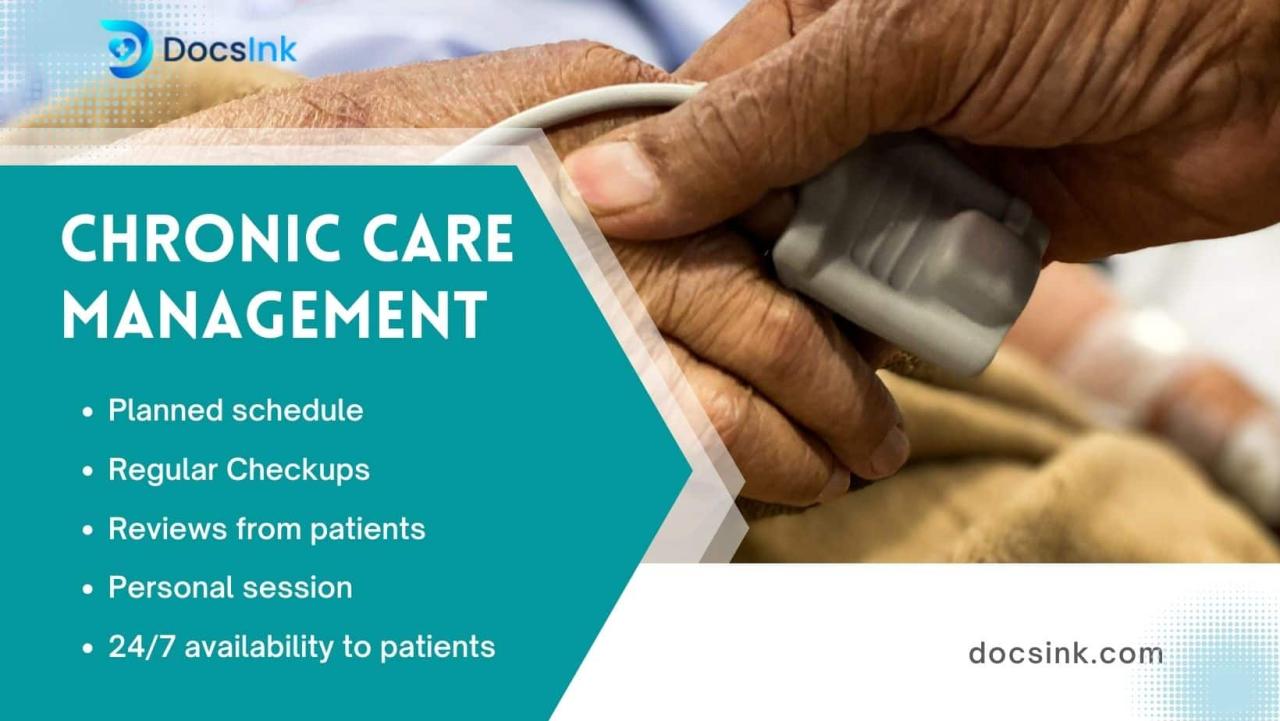Health insurance tips for chronic illness management: A Comprehensive Guide
Navigating the complexities of health insurance when dealing with chronic illness can be overwhelming. In this guide, we will explore valuable tips and strategies to help you effectively manage your condition while maximizing your health insurance benefits. Let's dive in!
Understanding Chronic Illness

Chronic illness refers to a long-lasting condition that typically cannot be cured but can be managed with appropriate treatment. It has a significant impact on daily life, affecting various aspects such as physical health, mental well-being, and social interactions.
Impact on Daily Life
- Chronic illnesses often require ongoing medical care, leading to frequent doctor visits, medications, and treatments.
- Individuals with chronic conditions may experience fatigue, pain, and other symptoms that affect their ability to perform daily activities.
- Mental health challenges, such as anxiety and depression, can also arise from the stress of managing a chronic illness.
Challenges in Managing Health
- Adherence to treatment plans can be difficult due to the complexity of managing multiple medications and therapies.
- Financial burdens from healthcare costs and insurance coverage can pose challenges for individuals with chronic illnesses.
- Social stigma and lack of understanding from others may impact the emotional well-being of those with chronic conditions.
Importance of Proactive Management
- Proactive management strategies, such as regular exercise, healthy eating, and stress management techniques, can help improve overall health and quality of life.
- Engaging in self-care practices and seeking support from healthcare professionals and support groups can empower individuals to better manage their chronic illness.
- Educating oneself about the condition, treatment options, and available resources is essential for effective management and informed decision-making.
Choosing the Right Health Insurance Plan
When it comes to managing a chronic illness, choosing the right health insurance plan is crucial. The right plan can make a significant difference in your quality of care and financial burden. Here, we will discuss key factors to consider when selecting a health insurance plan for chronic illness management.
Types of Health Insurance Plans
- Health Maintenance Organization (HMO): These plans require you to choose a primary care physician and get referrals to see specialists. They typically have lower out-of-pocket costs but less flexibility in choosing healthcare providers.
- Preferred Provider Organization (PPO): PPO plans offer more flexibility in choosing healthcare providers without needing referrals. They usually have higher premiums but lower out-of-pocket costs for out-of-network care.
- High Deductible Health Plan (HDHP): HDHPs have lower premiums but higher deductibles. They are often paired with Health Savings Accounts (HSAs) for tax benefits.
Key Features to Look for
- Coverage for Prescription Medications: Make sure the plan covers the specific medications you need for managing your chronic condition. Check for tiered formularies and copay amounts.
- Specialist Visits: Look for a plan that provides coverage for visits to specialists such as rheumatologists, cardiologists, or endocrinologists that are relevant to your condition.
- Out-of-Pocket Costs: Consider the deductible, copayments, and coinsurance amounts to understand your financial responsibility for medical services.
- Network Coverage: Ensure that your preferred healthcare providers, hospitals, and pharmacies are in-network to maximize coverage and minimize costs.
Utilizing Health Insurance Benefits

When managing a chronic illness, it is essential to make the most out of your health insurance benefits to ensure you receive the necessary treatments and services. Understanding how to navigate the health insurance system can significantly impact your quality of care and overall well-being.
Maximizing Health Insurance Benefits
Here are some tips to help you maximize your health insurance benefits for chronic illness management:
- Regularly review your health insurance policy to understand coverage for specific treatments and services related to your chronic illness.
- Consult with your healthcare provider to ensure that recommended treatments and procedures are covered by your insurance plan.
- Take advantage of preventive care services that may be covered at no cost under your insurance plan.
- Keep track of out-of-pocket expenses and ensure that you are meeting any deductibles or copayments required by your insurance plan.
Navigating the Health Insurance System
Here are some strategies to help you navigate the health insurance system effectively for necessary treatments and services:
- Understand the terms and conditions of your insurance policy, including copayments, deductibles, and coverage limits.
- Work closely with your healthcare provider to obtain pre-authorizations for specific treatments and procedures to avoid unexpected costs.
- Keep records of all medical expenses, including bills, receipts, and insurance claims, to track your healthcare spending.
- Utilize resources provided by your insurance company, such as online portals or customer service representatives, to clarify any doubts or questions regarding coverage.
Pre-Authorization Process
Pre-authorization is a crucial step in the health insurance process for specific treatments and procedures. Here's what you need to know:
- Pre-authorization is a requirement by insurance companies to approve certain medical services before they are provided to ensure they meet coverage criteria.
- Consult with your healthcare provider to determine if pre-authorization is necessary for any planned treatments or procedures.
- Submit all required documentation to your insurance company in a timely manner to avoid delays in receiving approval for pre-authorized services.
- Keep a copy of the pre-authorization approval for your records and reference during any billing or claims inquiries.
Managing Healthcare Costs
Managing healthcare costs can be a significant challenge for individuals with chronic illnesses. It is essential to have a clear understanding of the expenses involved and develop effective strategies to manage these costs efficiently.
Role of Copayments, Deductibles, and Coinsurance
Copayments, deductibles, and coinsurance are key components of healthcare expenses that individuals with chronic illnesses need to consider
Coinsurance refers to the percentage of costs shared between the individual and the insurance provider after the deductible has been met.
- Understand your insurance plan: Review your policy to determine the specific copayments, deductibles, and coinsurance amounts associated with your healthcare services.
- Plan ahead for expenses: Budget for copayments and deductibles, considering the frequency of your medical visits and treatments.
- Utilize cost-sharing options: Look for insurance plans with lower copayments and coinsurance rates to reduce your out-of-pocket expenses.
- Discuss payment options: Talk to your healthcare provider about payment plans or financial assistance programs that may help alleviate the financial burden of your medical expenses.
Tips on Budgeting for Medical Expenses and Utilizing Cost-Saving Measures
Effective budgeting and cost-saving measures can help individuals with chronic illnesses manage their healthcare costs more efficiently.
- Create a healthcare budget: Allocate a portion of your income specifically for medical expenses to ensure you can cover your healthcare costs without compromising other financial obligations.
- Compare prices: Research and compare the costs of medical services, medications, and treatments to find the most cost-effective options.
- Use generic medications: Opt for generic drugs whenever possible to save on prescription costs without compromising quality.
- Take advantage of preventive care: By prioritizing preventive services and screenings, you can detect and address health issues early, potentially reducing long-term medical expenses.
Accessing Specialist Care
When managing chronic conditions, access to specialist care is crucial for proper treatment and ongoing support.
Importance of Seeing Specialists
- Specialists have advanced training and expertise in specific medical areas, allowing for more targeted and effective care for chronic illnesses.
- They can offer specialized treatments, procedures, and therapies that may not be available from primary care physicians.
- Regular visits with specialists can help monitor the progress of the condition, adjust treatment plans as needed, and prevent complications.
Health Insurance Coverage and Specialist Care
- Your health insurance plan plays a significant role in your access to specialist care.
- Some plans require referrals from primary care physicians to see specialists, while others allow direct access.
- Understanding your plan's coverage for specialist visits, including copayments, deductibles, and out-of-pocket costs, is essential for managing healthcare expenses.
Finding In-Network Specialists and Referral Processes
- Check your insurance provider's website or contact their customer service to find in-network specialists to maximize coverage and minimize costs.
- Consult with your primary care physician to obtain referrals to specialists, ensuring that the necessary paperwork and approvals are in place.
- Be proactive in scheduling appointments with specialists, as waiting times may vary based on demand and availability.
Maintaining Health Records
Organizing and maintaining health records is crucial for effective chronic illness management. By keeping track of medical bills, test results, and treatment plans, individuals can ensure continuity of care and streamline the insurance claims process.
Tips for Organizing Health Records
- Create separate folders or digital files for different aspects of your healthcare, such as bills, lab results, and doctor's notes.
- Use a health journal or online health tracking app to record symptoms, medication changes, and appointments.
- Keep a list of all healthcare providers you see, including their contact information and specialties.
Benefits of Well-Maintained Health Records
- Facilitate communication with healthcare providers by providing accurate information about your medical history.
- Help in identifying patterns or trends in your condition, which can aid in treatment decisions.
- Streamline the insurance claims process by having all necessary documentation readily available.
Wellness Programs and Support Services

Wellness programs and support services play a crucial role in helping individuals manage chronic illnesses effectively. These programs offer a range of resources and tools to promote overall health and well-being while dealing with the challenges of a long-term health condition.
Wellness Benefits in Health Insurance Plans
Many health insurance plans now provide wellness benefits specifically designed to support individuals with chronic conditions. These benefits may include coverage for preventive services, health screenings, and access to fitness programs or resources to help individuals manage their conditions proactively.
Accessing Support Services
- Counseling:Individuals with chronic illnesses may benefit from counseling services to address emotional and mental health concerns related to their condition. Health insurance plans may cover sessions with therapists or counselors to provide support and coping strategies.
- Nutrition Counseling:Proper nutrition is essential for managing chronic diseases effectively. Health insurance plans may offer coverage for sessions with registered dietitians to create personalized nutrition plans tailored to individual health needs.
- Lifestyle Management Programs:Some health insurance plans provide access to lifestyle management programs that focus on areas such as stress management, physical activity, and smoking cessation. These programs aim to empower individuals to make positive lifestyle changes that can improve their overall health and well-being.
Final Conclusion
From understanding chronic illness to accessing specialist care and utilizing wellness programs, these tips aim to empower you in your healthcare journey. Remember, proactive management and informed decisions are key to living well with a chronic condition.
Helpful Answers
What are some key features to look for in a health insurance plan for chronic illness management?
Look for coverage of prescription medications, specialist visits, and pre-authorization processes to ensure comprehensive care.
How can I maximize health insurance benefits for chronic illness management?
Explore in-network specialists, understand your coverage, and utilize cost-saving measures like generic medications whenever possible.
Why is maintaining health records important for chronic illness management?
Organized health records aid in insurance claims, treatment continuity, and provide a comprehensive view of your medical history for better care.




